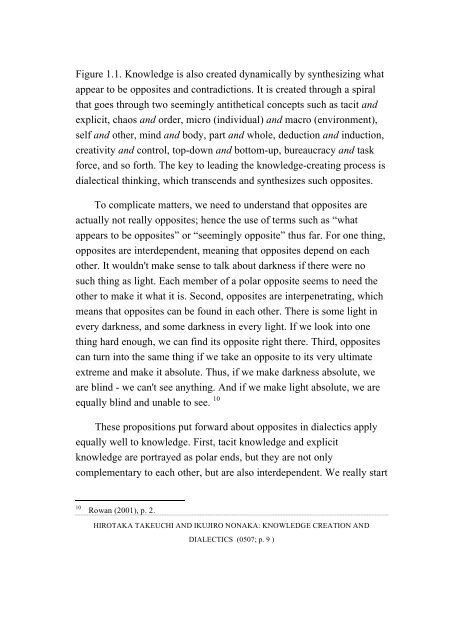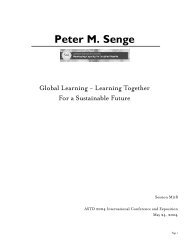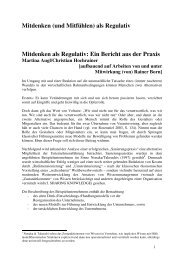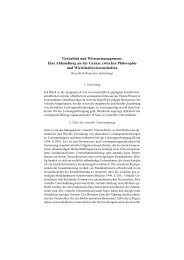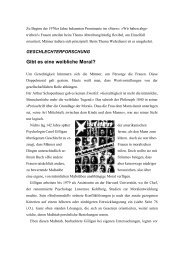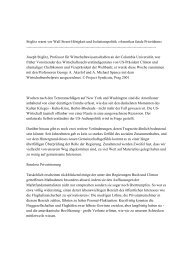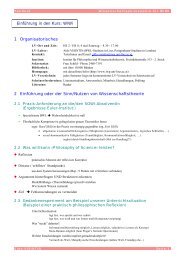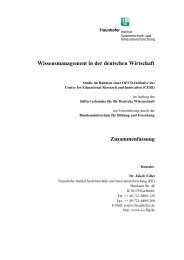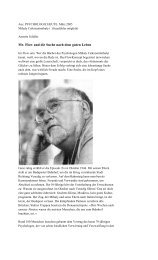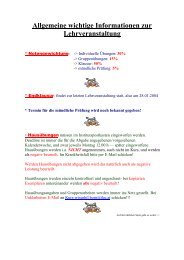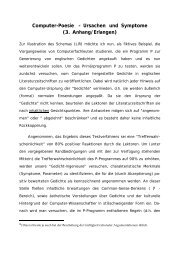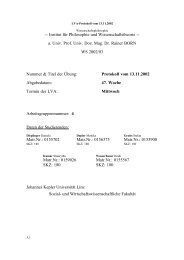KNOWLEDGE CREATION AND DIALECTICS
KNOWLEDGE CREATION AND DIALECTICS
KNOWLEDGE CREATION AND DIALECTICS
Create successful ePaper yourself
Turn your PDF publications into a flip-book with our unique Google optimized e-Paper software.
Figure 1.1. Knowledge is also created dynamically by synthesizing what<br />
appear to be opposites and contradictions. It is created through a spiral<br />
that goes through two seemingly antithetical concepts such as tacit and<br />
explicit, chaos and order, micro (individual) and macro (environment),<br />
self and other, mind and body, part and whole, deduction and induction,<br />
creativity and control, top-down and bottom-up, bureaucracy and task<br />
force, and so forth. The key to leading the knowledge-creating process is<br />
dialectical thinking, which transcends and synthesizes such opposites.<br />
To complicate matters, we need to understand that opposites are<br />
actually not really opposites; hence the use of terms such as “what<br />
appears to be opposites” or “seemingly opposite” thus far. For one thing,<br />
opposites are interdependent, meaning that opposites depend on each<br />
other. It wouldn't make sense to talk about darkness if there were no<br />
such thing as light. Each member of a polar opposite seems to need the<br />
other to make it what it is. Second, opposites are interpenetrating, which<br />
means that opposites can be found in each other. There is some light in<br />
every darkness, and some darkness in every light. If we look into one<br />
thing hard enough, we can find its opposite right there. Third, opposites<br />
can turn into the same thing if we take an opposite to its very ultimate<br />
extreme and make it absolute. Thus, if we make darkness absolute, we<br />
are blind - we can't see anything. And if we make light absolute, we are<br />
equally blind and unable to see. 10<br />
These propositions put forward about opposites in dialectics apply<br />
equally well to knowledge. First, tacit knowledge and explicit<br />
knowledge are portrayed as polar ends, but they are not only<br />
complementary to each other, but are also interdependent. We really start<br />
10<br />
Rowan (2001), p. 2.<br />
HIROTAKA TAKEUCHI <strong>AND</strong> IKUJIRO NONAKA: <strong>KNOWLEDGE</strong> <strong>CREATION</strong> <strong>AND</strong><br />
<strong>DIALECTICS</strong> (0507; p. 9 )


